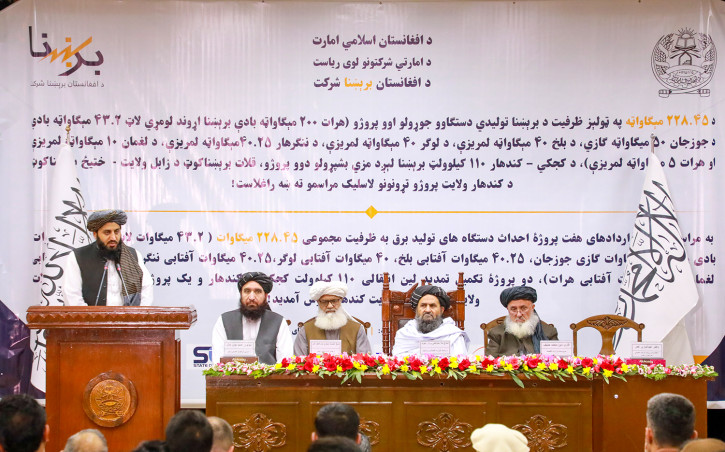Contracts Signed for Electricity Generation Projects Worth Over 20 Billion Afghanis

2025-03-27
On Thursday, March 27, 2025, in the presence of Mullah Abdul Ghani Baradar Akhund, Deputy Prime Minister for Economic Affairs, Da Afghanistan Breshna Sherkat (DABS) formalized agreements with private sector entities for ten electricity generation projects across six provinces of Afghanistan. The official signing ceremony was held at the Government Media and Information Center.
During the event, Dr. Abdul Bari Omar, Chief Executive Officer of DABS, emphasized the organization’s unwavering commitment to leveraging domestic energy resources to ensure a sustainable and reliable electricity supply for the nation.
Dr. Omar further highlighted DABS’s preparedness to sign ten strategic contracts with private companies, comprising two power transmission line extension projects and eight electricity generation investment initiatives.
These projects, with a combined generation capacity of 228.2 megawatts (MW) and a total investment exceeding 20 billion Afghanis, represent a significant advancement in Afghanistan’s energy infrastructure.
These projects include, 43.2 MW wind power and 5 MW solar power in Herat province, 50 MW gas-fired power generation in Jawzjan province, 40.25 MW solar power in Balkh province, 40 MW solar power in Logar province, 40 MW solar power in Nangarhar province, 10 MW solar power in Laghman province, as well as development of a 110-kilovolt power transmission line of Kajaki-Kandahar Corridor and establishment of critical power stations in Zabul (Qalat) and Kandahar (East).
These projects signify a major milestone in enhancing Afghanistan’s energy self-sufficiency, reducing reliance on imported electricity, and fostering private-sector investment in the country’s power sector. The successful implementation of these initiatives will contribute to economic growth, industrial development, and an improved quality of life for Afghan citizens.
This landmark initiative reaffirms the commitment of DABS and the Government of Afghanistan to expanding the nation’s renewable and conventional energy capacity while ensuring long-term sustainability and resilience in the power sector.


